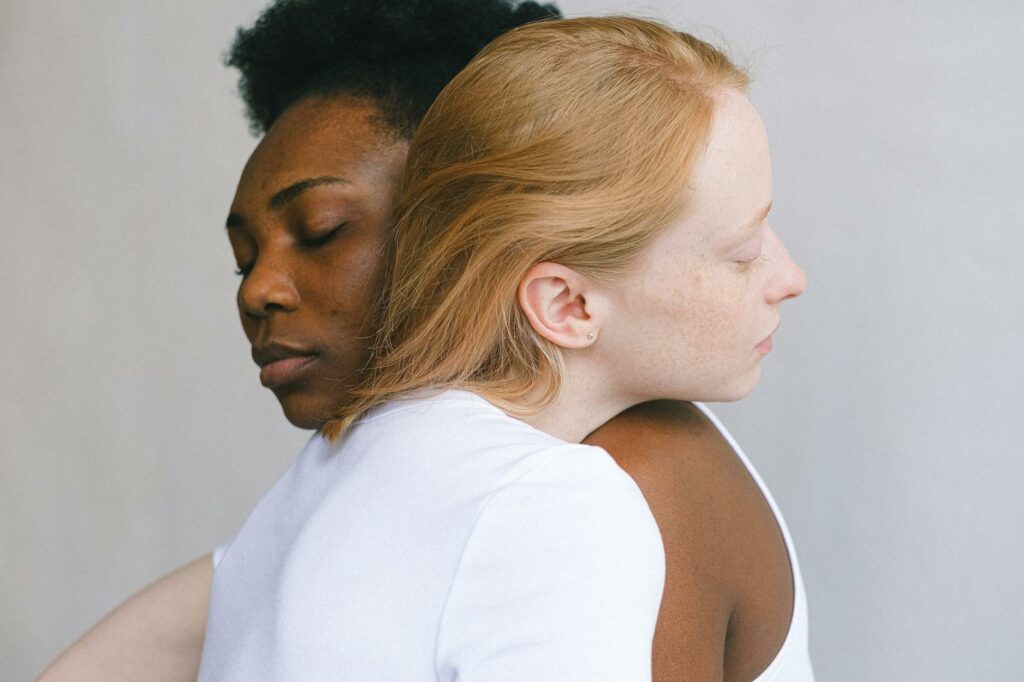
When you think about counselling, you might picture someone lying on a couch talking about their childhood while a therapist nods thoughtfully. Honestly, I used to think the same thing. But after my own experience, I can tell you firsthand: counselling isn’t just for people in “crisis.” It’s for anyone who feels stuck, frustrated, or like something invisible is blocking their progress. And unlocking that “something” can change everything.
I’m not a doctor, but having gone through this journey myself, I know how scary it can be to even think about counselling. You might tell yourself, “I’m fine,” or “Other people have it worse.” But if you’re reading this, chances are part of you knows you’re ready for something more.
Why We Get Stuck
Life piles on us. Responsibilities, trauma, heartbreak, fear of failure — it all accumulates. Sometimes you don’t even realize how heavy you’re carrying until you stop and check in with yourself.
Common reasons we get stuck:
| Reason | Example |
|---|---|
| Fear of Failure | You don’t apply for a dream job because you’re convinced you’ll be rejected. |
| Low Self-Worth | You settle for bad relationships because you don’t think you deserve better. |
| Unresolved Trauma | You lash out or retreat without understanding why. |
| Lack of Boundaries | You burn out because you can’t say “no.” |
| Imposter Syndrome | You achieve things but still feel like a fraud. |
The Role of Counselling
Counselling acts like a mirror. A good counsellor helps you see patterns you’ve normalized. It’s not about them “fixing” you. It’s about you recognizing your own blocks and learning strategies to overcome them.
Some core areas counselling can help with:
- Self-awareness: Understanding your emotional triggers.
- Behavioral patterns: Recognizing habits that sabotage you.
- Resilience: Learning how to bounce back instead of giving up.
- Confidence: Rebuilding belief in yourself.
What Happens in a Counselling Session?
The idea of “talk therapy” can feel weird at first. You sit across from someone and… talk? But sessions are structured conversations aimed at exploring and challenging the beliefs, fears, and assumptions that shape your world.
Common techniques include:
- Cognitive Behavioral Therapy (CBT): Focuses on identifying and restructuring negative thought patterns. (Learn more about CBT)
- Solution-Focused Therapy: Centers on finding practical solutions rather than dwelling on problems.
- Psychodynamic Therapy: Explores how past experiences influence current behavior.
- Mindfulness-Based Therapies: Teach you to stay present rather than get stuck in regrets or anxieties.
The Barriers to Seeking Help
I’m going to be blunt: pride and fear keep most people out of counselling. There’s a stigma, especially if you think “only weak people need help.” That’s nonsense. It takes incredible strength to be vulnerable.
Other barriers include:
- Financial concerns (though many communities offer low-cost services)
- Fear of being judged
- Belief that “talking won’t solve anything”
- Bad past experiences with therapy
How to Choose the Right Counsellor
Finding the right fit matters. You might have to “shop around” a little, and that’s okay.
Look for:
- Proper credentials (licensed therapists, certified counsellors)
- Experience with your specific issues
- A communication style that makes you feel seen and heard
Don’t be afraid to ask them about their approach. A good counsellor welcomes your questions.
The Breakthrough Moment
For me, the breakthrough wasn’t dramatic. It wasn’t some teary, cinematic moment. It was slow and subtle. I realized one day I wasn’t second-guessing every word that came out of my mouth. I didn’t feel obligated to say “yes” to everything. I started feeling free.
That’s what counselling unlocks: a better relationship with yourself.
What You Can Expect Over Time
- More energy: Emotional exhaustion lifts when you’re not fighting internal battles all the time.
- Better relationships: You set boundaries and attract healthier people.
- More opportunities: When you believe you deserve better, you seek and find better.
- More resilience: Setbacks don’t destroy you; they become learning curves.
Common Myths About Counselling
| Myth | Reality |
|---|---|
| “Counselling is just complaining.” | It’s structured problem-solving. |
| “It’ll take forever.” | Many issues can improve within a few months. |
| “It’s only for trauma.” | Everyday stress and self-growth are valid reasons. |
| “Only weak people need it.” | Strong people know when to ask for help. |
| “It’s too expensive.” | Many low-cost options exist. |
When to Seriously Consider Counselling
You don’t have to “hit rock bottom” to justify it. Some clear signs it’s time:
- Feeling constantly overwhelmed
- Struggling with decision-making
- Recurring patterns of failed relationships
- Inability to manage anger, sadness, or anxiety
- Feeling “stuck” or “numb”
If any of these resonate, that’s your green light.
The First Step is the Hardest
Making the call. Sending the email. Booking the appointment. That’s often the hardest part. But after that first step, it gets easier.
Real-Life Example: Sara’s Story
Sara was a high-achieving professional who always felt like a fraud. Every accomplishment left her more anxious. She finally sought counselling after a panic attack at work. Within six months of therapy focused on imposter syndrome and self-worth, she learned how to recognize and counteract her “inner critic.” Today, Sara manages a team and feels genuinely proud of her achievements.
How Long Does It Take to See Results?
It depends. Some people see improvements after a few sessions. Others take longer. What matters is progress, not perfection.
Typical timeline:
| Timeline | What to Expect |
|---|---|
| 1-3 sessions | Building rapport, identifying goals |
| 4-8 sessions | Starting to see small shifts |
| 9-16 sessions | Deeper breakthroughs |
| 6 months+ | Significant lifestyle and mindset changes |
What if it Doesn’t Work?
If counselling doesn’t seem to be helping, don’t quit on yourself.
Consider:
- Switching counsellors
- Trying a different therapy type
- Adjusting your goals
Sometimes growth comes from finding the right fit, not from sticking with a bad one.
A New Relationship With Yourself
Counselling isn’t about changing who you are. It’s about shedding the layers of fear, guilt, shame, and doubt that were never yours to carry in the first place.
You’ll still be you — just a freer, braver, more grounded version.
Final Thoughts
Counselling isn’t a magic bullet. It takes commitment, patience, and a willingness to be uncomfortable sometimes. But it can unlock parts of you that have been trapped for too long.
If you’re even thinking about getting help, take that as your sign. You’re ready.
The life you want is still within reach. Sometimes, you just need a little help unlocking the door.
